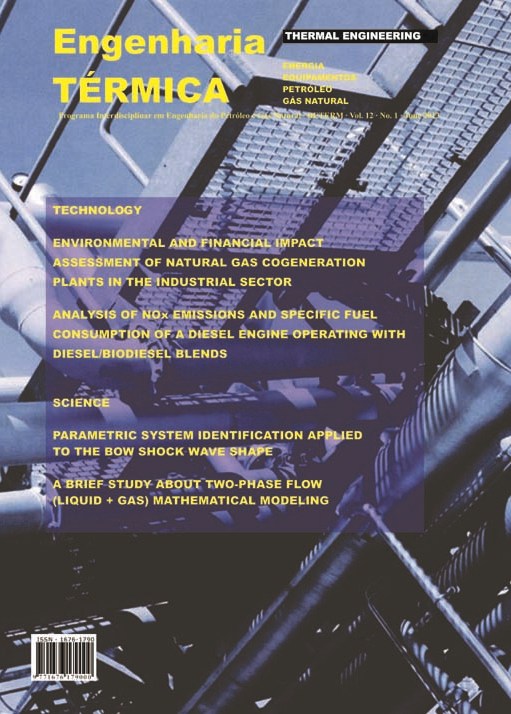A DIESEL ENGINE CONVERTED INTO OTTO CYCLE ENGINE: THE INFLUENCE OF THE SPARK ADVANCE ON ITS PERFORMANCE AND ON NOx EMISSIONS
DOI:
https://doi.org/10.5380/reterm.v12i1.62027Keywords:
LPG, Spark Advance, NOx emissions, Performance of a diesel converted engine to an Otto cycleAbstract
This paper analyzes the performance of a diesel engine converted into an Otto cycle engine and its Nitrogen dioxide emissions in terms of the spark advance variation. The tests were conducted on a Perkins diesel engine 1104C - 44TAG turbocharged, whose compression ratio was reduced to 9.33:1. After conversion the engine started operating with liquefied petroleum gas (LPG) and running just with stoichiometric mixtures. The tests have been limited to 10 to 40 kW, always at 1800 rpm. During the experiments the ignition advance angle ranged from 5º up to 27º (BTDC), using the increment of 5°, whenever possible. Particularly at 40 kW, the range of the ignition advance was 15º to 20º. The results showed a significant influence of the spark advance angle on the fuel consumption, on the temperature and on the NOx emissions, as well as on the magnitude of the generated power.
Downloads
Published
How to Cite
Issue
Section
License
Direitos Autorais para artigos publicados nesta revista são do autor, com direitos de primeira publicação para a revista. Em virtude da aparecerem nesta revista de acesso público, os artigos são de uso gratuito, com atribuições próprias, em aplicações educacionais e não-comerciais.



